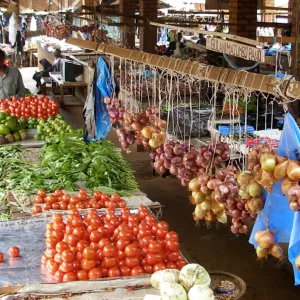Reducing food loss and waste (FLW) is crucial to improving food security, reducing malnutrition, and providing livelihoods for food system workers. But such efforts are also key to combating climate change. FLW has significant environmental impacts, including greenhouse gas (GHG) emissions in both the production of food that is later lost and in waste management.
Overall, food systems contribute an estimated 33% to anthropogenic GHG emissions; food waste alone is responsible for 8%-10%. Yet most countries that have submitted their Nationally Determined Contributions (NDCs) for reducing carbon emissions under the Paris Climate Agreement have not included any commitments for reducing FLW.
Thus, national FLW management policies and strategies are often not aligned with climate action goals as articulated in the NDC commitments and their implementation plans. To address these problems, countries must work to transform their institutions and build supportive regulatory frameworks to reduce agrifood system GHG emissions and integrate FLW reduction into those efforts. What steps should they take to pursue these complex challenges?


